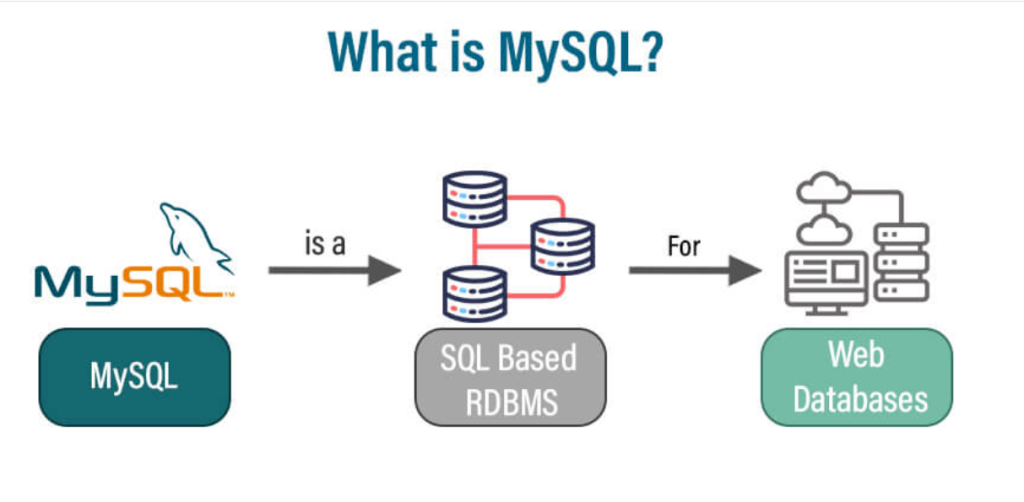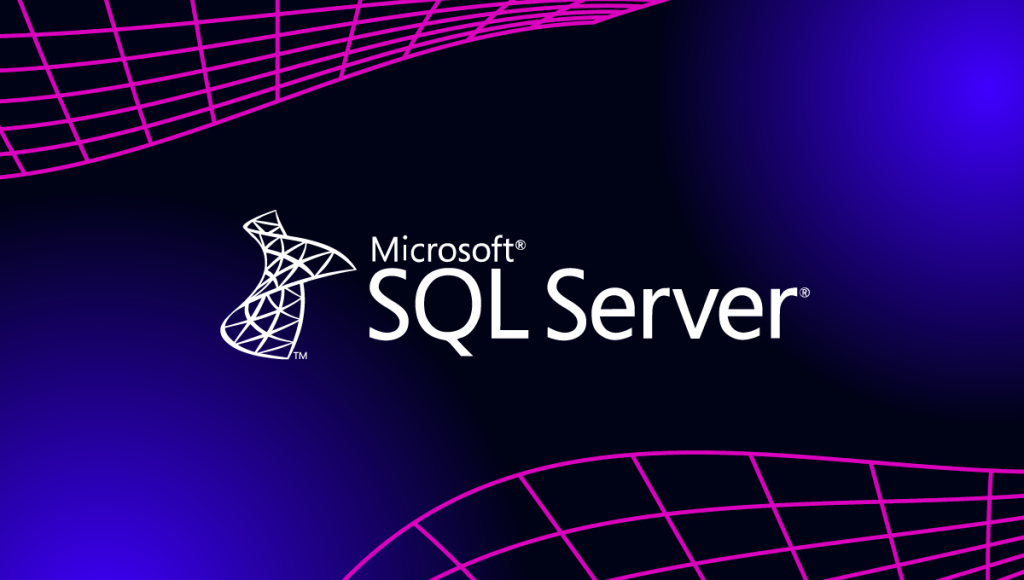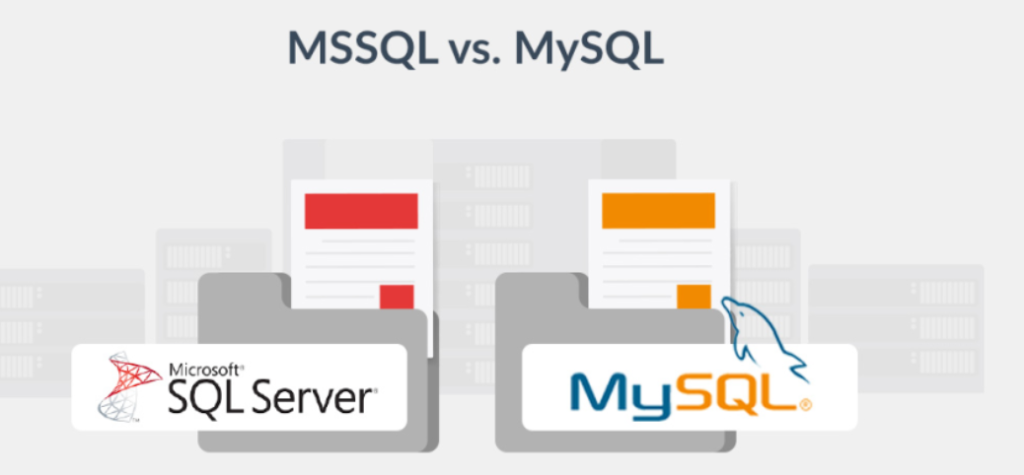What is MySQL?

MySQL is an open-source relational database management system (RDBMS) that is widely used for managing and organizing data. It uses Structured Query Language (SQL) for accessing and managing the data stored in databases. MySQL is known for its speed, reliability, and ease of use, making it popular for web applications and other data-driven projects. It can handle large volumes of data and is compatible with various operating systems, including Linux, Windows, and macOS.
Table of Contents
What is MSSQL?

Microsoft SQL Server (MSSQL) is a relational database management system (RDBMS) developed by Microsoft. It is designed to store and manage large volumes of data, providing features such as data storage, retrieval, and manipulation through Structured Query Language (SQL). MSSQL is commonly used in enterprise environments for mission-critical applications, data warehousing, business intelligence, and web applications. It offers various editions with different features and capabilities to meet the needs of different organizations and applications.
MySQL or MSSQL: Key Differences

MySQL and MSSQL (Microsoft SQL Server) are both popular relational database management systems (RDBMS), but they have several key differences:
- Vendor: MySQL is developed and maintained by Oracle Corporation, while MSSQL is developed and maintained by Microsoft.
- Licensing: MySQL is available under the open-source GNU General Public License (GPL), which allows users to use, modify, and distribute the software freely. MSSQL, on the other hand, is a commercial product with various editions (Express, Standard, Enterprise, etc.), each with its own licensing model.
- Platform: MySQL is known for its cross-platform compatibility and can run on various operating systems such as Linux, Windows, and macOS. MSSQL is primarily designed for Windows-based environments, although there are versions (e.g., SQL Server for Linux) that expand its platform support.
- Features: MSSQL typically offers more advanced features and capabilities, especially in terms of enterprise-level features such as high availability, security, scalability, and business intelligence tools. MySQL, while powerful and widely used, may have fewer built-in features in comparison.
- Performance: Both MySQL and MSSQL can offer high performance, but the actual performance can vary depending on factors such as hardware, configuration, workload, and optimization techniques. MSSQL is often preferred for heavy-duty transactional systems, while MySQL is commonly used in web applications and smaller-scale deployments.
- Cost: MySQL is free to use under the open-source license, which can be advantageous for organizations with budget constraints. MSSQL, however, requires purchasing licenses for certain editions, which can contribute significantly to the overall cost of using the software.
- Community and Support: Both MySQL and MSSQL have strong communities and support networks. MySQL benefits from a large open-source community, with extensive documentation, forums, and resources. MSSQL, being a Microsoft product, offers official support, documentation, and integration with other Microsoft technologies.
These differences can influence the choice of database system depending on factors such as budget, platform requirements, feature needs, and scalability considerations.
What are the advantages and disadvantages of MySQL and MSSQL

The advantages and disadvantages of MySQL and Microsoft SQL Server (MSSQL):
Advantages of MySQL:
- Open Source: MySQL is available under an open-source license, making it free to use, modify, and distribute. This can be a significant advantage for organizations with budget constraints.
- Cross-Platform Compatibility: MySQL can run on various operating systems such as Linux, Windows, and macOS, providing flexibility in deployment options.
- Community Support: MySQL has a large and active open-source community, which means extensive documentation, forums, tutorials, and community-driven enhancements and plugins are available.
- Performance: MySQL can offer good performance, especially for web applications and smaller-scale deployments. It is known for its speed and reliability.
- Scalability: MySQL can handle large volumes of data and is scalable, although it may not offer as many built-in scalability features as some commercial database systems.
Disadvantages of MySQL:
- Feature Set: MySQL may have fewer built-in features and advanced capabilities compared to commercial database systems like MSSQL, especially in terms of enterprise-level features such as high availability, security, and business intelligence tools.
- Limited Support: While there is strong community support for MySQL, official support options may be limited compared to commercial database systems. Organizations may need to rely on community forums or third-party support providers for certain issues.
Advantages of MSSQL:
- Feature-Rich: MSSQL offers a wide range of features and capabilities, including advanced security features, high availability options, built-in business intelligence tools (like SQL Server Reporting Services and Analysis Services), and support for large-scale enterprise applications.
- Integration with Microsoft Ecosystem: MSSQL integrates well with other Microsoft products and technologies, such as .NET Framework, Visual Studio, Azure services, and Windows Server, providing a cohesive ecosystem for development and deployment.
- Scalability: MSSQL is designed for scalability and high-performance, making it suitable for demanding enterprise-level applications and data-intensive workloads.
- Official Support: Microsoft provides official support, documentation, training, and certification programs for MSSQL, ensuring reliable technical assistance and resources.
Disadvantages of MSSQL:
- Cost: MSSQL is a commercial product, and different editions (such as Standard, Enterprise, and Datacenter) come with varying costs. Licensing fees can be a significant factor for organizations with limited budgets.
- Platform Dependency: While MSSQL has expanded its platform support with versions for Linux and Docker containers, it is primarily designed for Windows-based environments. This may limit deployment options for organizations preferring non-Windows platforms.
- Complexity: The wide range of features and options in MSSQL can lead to complexity, especially for users who are not familiar with Microsoft technologies or database administration best practices.